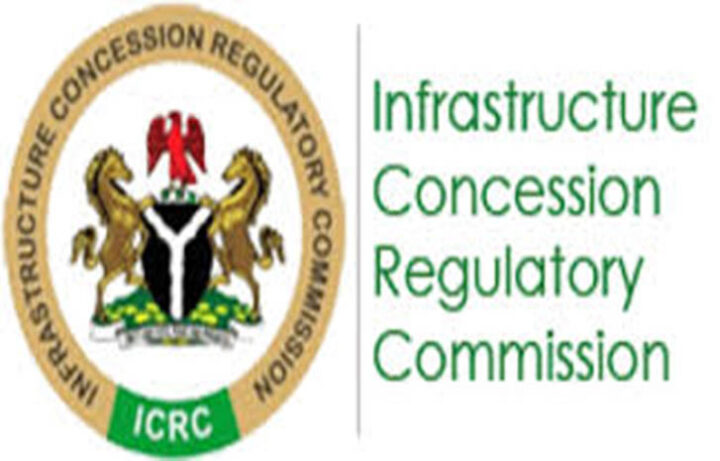The Infrastructure Concession Regulatory Commission (ICRC) has introduced fresh guidelines for Public-Private Partnership (PPP) projects in Nigeria, while also decentralising approval powers to Ministries, Departments, and Agencies (MDAs) to fast-track infrastructural development.
The new framework, announced in Abuja on Friday, is aimed at deepening transparency, efficiency, and accountability in the execution of PPP arrangements across the country. It also seeks to reduce bureaucratic bottlenecks that have historically delayed the approval and implementation of major projects.

According to the ICRC, the decision to decentralise certain approval powers will empower MDAs to play a more active role in designing, initiating, and managing PPPs within their sectors, under the commission’s regulatory oversight. The move is part of ongoing reforms designed to attract more private investment into Nigeria’s infrastructure sector, estimated to require over $100 billion annually to bridge the existing gap.
Speaking during the launch, ICRC Director-General, Dr. Jobson Oseodion Ewalefoh, explained that the updated guidelines are in line with global best practices and reflect lessons learned from past projects. He said the decentralisation policy will give MDAs the autonomy to take faster decisions without unnecessary delays, while ensuring that due process and accountability remain intact.
“The new PPP guidelines are designed to strengthen institutional capacity, provide clarity on roles and responsibilities, and build investor confidence. By decentralising approval powers to MDAs, we are not relinquishing oversight; rather, we are making the process more efficient while maintaining regulatory checks to safeguard the public interest,” Ewalefoh stated.
He noted that infrastructure development is critical to Nigeria’s economic growth and the achievement of the government’s long-term development agenda. By making PPP processes less cumbersome, the country stands to attract more credible investors willing to commit funds into roads, power, railways, healthcare, housing, and other sectors.
The ICRC boss also revealed that the commission has successfully guided several PPP projects to financial close in recent years, but admitted that bureaucratic red tape had discouraged many potential investors. The new guidelines, he stressed, are intended to change this narrative by ensuring a streamlined process that balances speed with transparency.
Under the new framework, MDAs are required to establish dedicated PPP units staffed with trained professionals who will be responsible for project appraisal, contract management, and performance monitoring. The ICRC will continue to serve as the central regulator, providing technical support and ensuring compliance with legal and policy frameworks.
Industry experts have welcomed the reforms, describing them as a bold step toward unlocking Nigeria’s infrastructure potential. They argue that decentralisation will not only make PPPs more attractive but also align projects more closely with sectoral needs, since MDAs have a better understanding of their operational priorities.
However, some stakeholders have cautioned that decentralisation must be accompanied by strict accountability mechanisms to prevent abuse of power. They stressed the need for transparency in project selection, procurement, and execution, warning that corruption and weak oversight could undermine the expected benefits.
In response, Ewalefoh assured that the ICRC has incorporated robust accountability frameworks in the guidelines, including mandatory periodic reporting, third-party audits, and performance reviews. He also disclosed that capacity-building initiatives are already underway to train MDA officials on the intricacies of PPP structuring and management.
The commission further emphasised that all PPP projects, regardless of the decentralisation policy, must still align with Nigeria’s National Development Plan and Medium-Term Expenditure Framework. This, it said, will ensure that projects are not only commercially viable but also socially impactful and aligned with national priorities.
Analysts say the timing of the reforms is significant, given the government’s growing reliance on private capital to bridge fiscal gaps. With public revenues under pressure and borrowing constraints mounting, PPPs are increasingly seen as a viable pathway to delivering critical infrastructure without overburdening the national budget.
The business community has also expressed optimism that the decentralisation of approval powers will reduce delays that often discourage investors. According to the Lagos Chamber of Commerce and Industry (LCCI), faster project approvals mean shorter turnaround times, reduced costs, and quicker delivery of services to the public.
Civil society groups, on the other hand, have called for greater citizen engagement in PPP processes to ensure that projects serve the public interest and do not lead to exploitative concessions. They urged the government to prioritise transparency in contract disclosures, pricing mechanisms, and performance metrics.
In conclusion, the unveiling of the new PPP guidelines and the decentralisation of approval powers to MDAs represent a significant shift in Nigeria’s infrastructure policy. If properly implemented, the reforms could accelerate the pace of project delivery, attract greater private investment, and enhance economic competitiveness. However, the success of the initiative will depend on sustained oversight, institutional capacity, and a firm commitment to transparency.
Support InfoStride News' Credible Journalism: Only credible journalism can guarantee a fair, accountable and transparent society, including democracy and government. It involves a lot of efforts and money. We need your support. Click here to Donate
